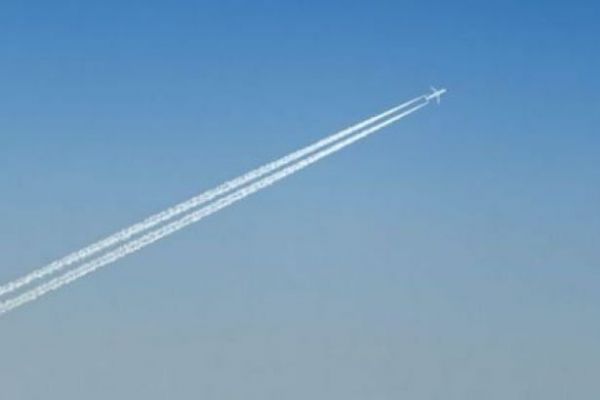Big deals at this week's Paris Airshow have highlighted a sharp recovery in air travel demand. The sector promises to reduce net emissions to zero by 2050. Green groups say more planes in the sky could hamper those efforts.
Aviation generates roughly 3% of global emissions. It is also one of the most difficult sectors to decarbonize.
A GE Aerospace poll suggested almost a third of aviation's sustainability executives doubt the net-zero goal is reachable.
The focus on sustainability comes as new European rules will require many airlines to use sustainable aviation fuel (SAF) and better track their carbon emissions.
These are the main strategies the sector plans to use to reach its goal.
Alternative Fuels
Airlines are trying to purchase more SAF, which produces up to 80% fewer carbon emissions on a lifecycle basis than traditional jet fuel.
But SAF makes up only 0.1% of the fuel currently in use in aviation and it costs three to five times more.
Most of the SAF in use is produced from biological feedstocks that are often limited in supply, like corn, used cooking oil or leftover woodchips from logging.
European regulators are hopeful airlines will switch to synthetic e-fuels, which can be made with captured carbon and green hydrogen, but are being produced in even lower quantities and at much higher cost.
Operational Improvements
The European Union has for years vowed to push through an overhaul of air traffic management systems to shorten flight paths and reduce fuel burn but the reform has been long delayed.
As it stands, most planes have to fly through separately managed corridors. Creating a single European sky would lead to more efficient and direct flights, airlines argue, ultimately reducing emissions by up to 10%.
There's pressure on European regulators to push the reform through this year but scepticism remains that it'll be possible given employment concerns in countries such as France.
Offsets
Tree planting, investing in renewable energy and helping communities switch out old polluting cooking stoves are all projects that airlines have invested in to counteract their own emissions.
But some initiatives have been accused of failing to eat up enough carbon in the atmosphere. And critics say they do not lower actual airline emissions.
The United Nations' Carbon Offsetting and Reduction Scheme for International Aviation (CORSIA), which becomes mandatory in 2027, will use these projects in part to help airlines cap emissions at 85% of 2019 levels.
But carriers like easyJet have turned away from offsets and are opting to invest in more innovation instead.
New Technologies
Researchers have touted hydrogen-powered and electric engines for planes as the ultimate solution to eliminate carbon emissions. Hydrogen can be used to power a plane engine or to harness a fuel cell that makes electricity.
But the wait will be long. Airbus says it will introduce its first commercial hydrogen-powered model in 2035.
And, even if they work, hydrogen-powered planes will only be viable for shorter haul flights.
Long-haul travel, which emits the most carbon, will still rely mainly on SAF to reduce emissions.
Fleet Renewal
The fastest way to reduce carbon emissions immediately is to buy new planes, airlines and planemakers say. Newer models like the Airbus A321neo AIR.PA can help reduce emissions by up to 25% compared with older planes they replace, Airbus says.
But supply chain issues are causing delays to deliveries of new planes, forcing some airlines to revive older models that can emit more carbon.
Environmental groups say that if plane orders continue at their current pace, more and more planes will be flying, leading to larger cumulative emissions as the emission reductions from the new models simply aren't substantial enough.
Read More: Climate And Ukraine Loom Over Supply-Strained Paris Airshow
News by Reuters, edited by Hospitality Ireland. Click subscribe to sign up for the Hospitality Ireland print edition.








